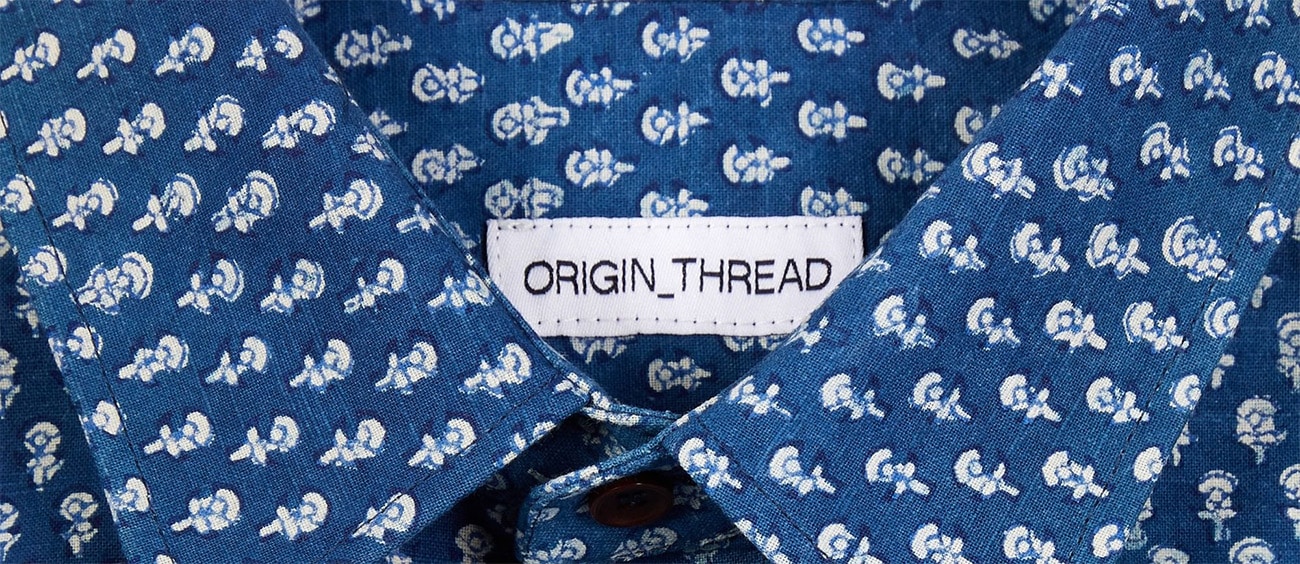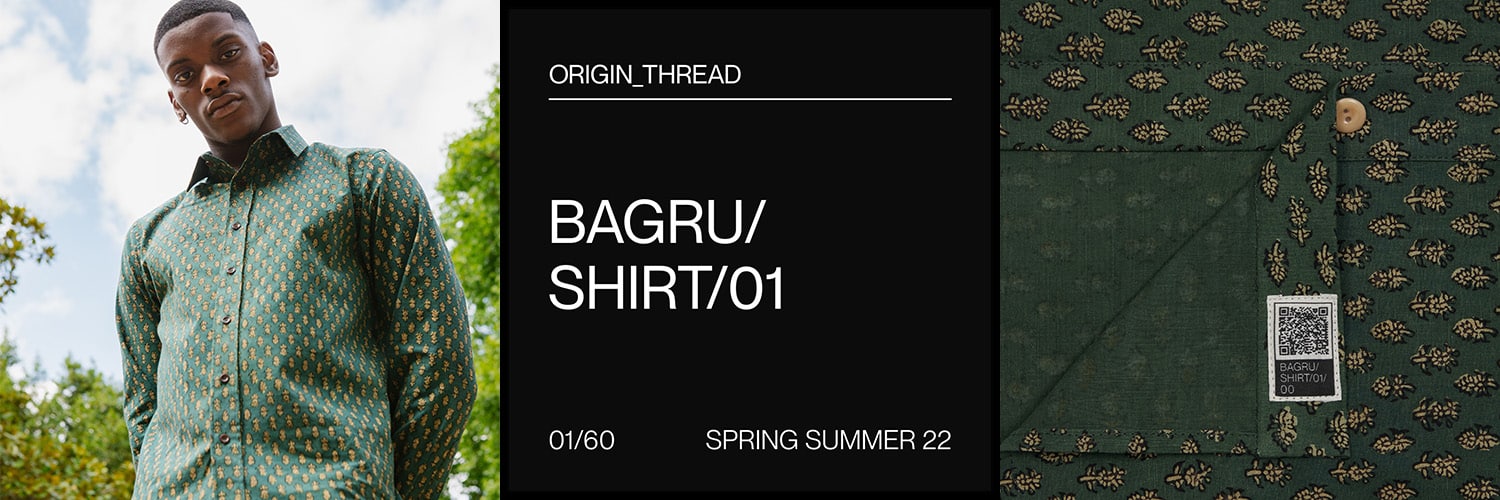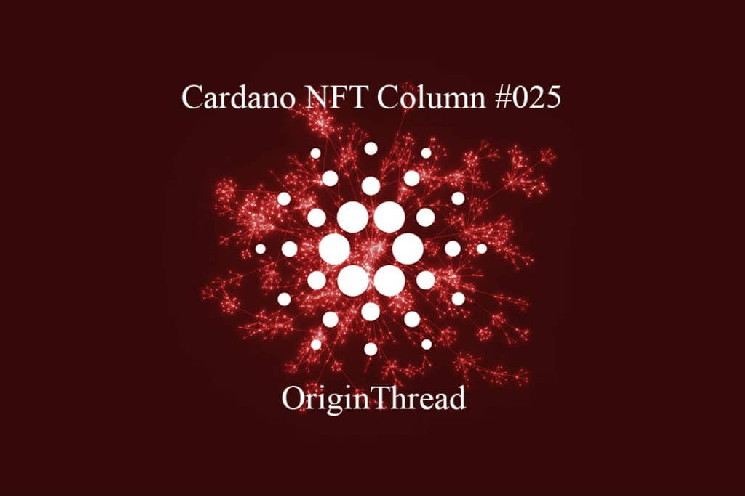This week’s guest on the Cardano NFT Column is a project that is using blockchain to allow customers to verify the provenance of the clothing that they wear: OriginThread.
Last week’s guest was a next generation NFT-driven play and earn dungeon crawler MMO.
This initiative is a point of reference for NFTs on Cardano and every week or two we will invite someone to answer some questions and give us an update directly from within the Cardano community.
Considering that many of our readers are new to the crypto space, we will have a mix of simple and technical questions.
Cardano NFT project: OriginThread

Hey, glad to have you here. Please introduce yourself, where are you from, what is your background?
My name is Will Etheridge, I’m from the South West of the UK. I graduated from the Royal Academy of Music and first became connected to the clothing industry whilst working in India in my early 20s. I would have a local tailor make clothes for me and send them back to the UK for a friend to sell. I spent the rest of my 20s working in sales and marketing roles covering everything from pharma supply chains to using Youtubers to promote arts organisations.
During the pandemic I simultaneously began to really explore the potential of the blockchain and become increasingly bored of my comfortable marketing role. I set out to explore how NFTs and blockchain tech might improve the clothing industry. Nearly one year later, our first clothes with fully transparent supply chains recorded on the garments NFT are now on sale.
Why have you chosen the Cardano blockchain for your endeavour? And in what ways are you using Non-Fungible Tokens (NFTs)?
Long term vision and slow and secure approach.
It’s important that we build on a network that works today and will continue to work as the blockchain scales to billions of users. As I explored different L1s, it seemed that Cardano had the clearest path to meeting these demands. If as a business we choose to operate on a platform which is vulnerable to exploits or downtime we risk permanently turning away and losing customers.
Native assets with low fees.
I minted some NFTs on Ethereum whilst first exploring NFTs. To me it didn’t seem feasible that a customer buying a $150 shirt would spend an additional $50 to receive an NFT accompanying it. Cardano’s low and predictable fees will allow us to manage costs whilst scaling. Additionally the NFTs existing as native assets rather than contracts allow us to do cool things like mint and send many NFTs in a single transaction again keeping costs down.
Project Catalyst.
We’ve just completed our first entry into Project Catalyst, we’ll find out if our application has been successful in the coming weeks. Funding is a key challenge for any business. Having access to grant funding is a game changer for development and growth. To put things into perspective, the latest catalyst fund size was $16 million, about £14 million just for the Cardano ecosystem.
The UK government runs an “Innovate UK Smart Grant” which in a similar time frame gives away £25 million. It won’t be long until the grants for innovation on Cardano exceed those of a G6 nation. Catalyst is a unique and incredible opportunity and a large part of our plans for 2023.
Mission driven community.
It seems to us that many Cardano community members are mission driven. They understand the blockchain’s potential to create a better world. It seemed to me that this would be a more receptive audience for what we are trying to bring to the clothing industry.
There are plenty of unethical practices in the clothing industry. How can blockchain technology help mitigate and in some cases solve pollution and violations of human rights?
Where do your clothes come from?
Few can answer this question. Behind this lack of transparency the fashion industry hides a number of destructive practices. From the abuse of human and natural resources to widespread organic certification fraud.
We’re exploring how the blockchain can be used to allow customers to verify the provenance of the clothing that they wear. Our goal is to make this level of transparency more common across the fashion industry and to make it normal for customers to demand verifiable proof that their garments have been made in an ethical way.
Our first iteration of a solution to this problem was to accompany a garment with an NFT. The NFT acts as a permanent record of the garments sourcing information as well as containing a video to create an emotional connection to the process of how the clothes are made. This is a good first step but falls foul of the “don’t trust, verify” approach.

Our recent Catalyst proposal has set out our plan to use the blockchain to trace materials in the supply chain from cotton field to cutting table. To do this, the raw materials in the supply chain will be represented as native assets. The transformation of materials will be traced by the burning of input materials and the minting of output materials referencing the input materials. This approach will allow an end consumer to trace the provenance of the materials in their garment right to the beginning of the supply chain.
There’s additional challenges at the other end of the fashion supply chain. How can we extend the use of garments either by recycling, repairing or reusing? We’re also exploring how the blockchain can be used in these instances.
What does the future of OriginThread look like? Where do you envision your project in 1, 5 and 10 years respectively?
1 Year
Developed and launched the first iteration of an on-chain supply chain on Cardano.
Developed the systems and tooling to create a great customer experience when buying, claiming and receiving NFTs/ garments.
Ease of use / onboarding / clarity of messaging and for beginnings of adoption outside of current crypto users.
Wider range of products / suppliers / materials
5 Year
Supply chain tracing system, asset creation and minting system and unlockable customer experiences all built out and able to scale.
Ability as a brand to create multiple collections of sold out, “must own” collections every year.
Circular models empowered by the blockchain developed and rolled out.
Onboarding of other ethical businesses to using our supply chain tracing system.
Origin Thread is now recognised as a pioneer in the NFT connected clothing space.
10 Year
Verifiable sourcing information and traceability becomes standard practice in an ever increasing segment of the fashion industry.
OT transparency system used across the fashion industry tokenizing tens of millions of garments every year.

Thank you kindly for your time. Any closing comments? Where can people learn more?
Thanks for reading!
If any of this has interested you, please do drop me an email. I’m currently building out our advisory board and will be recruiting into 2023 so please do say hello if either of these things are of interest to you.
Disclaimer: The opinions and views of the people interviewed are their own and do not necessarily reflect those of the Cardano Foundation or IOG. Moreover, this content is for educational purposes, it doesn’t constitute financial advice.
 en.cryptonomist.ch
en.cryptonomist.ch
